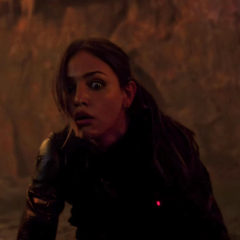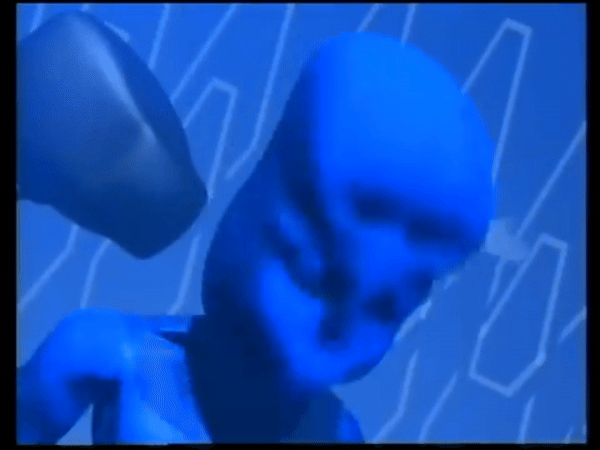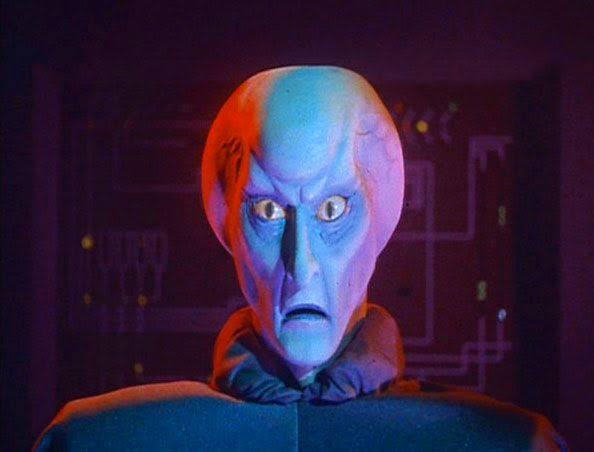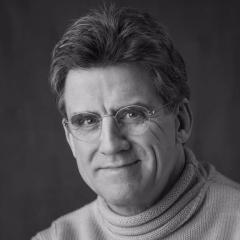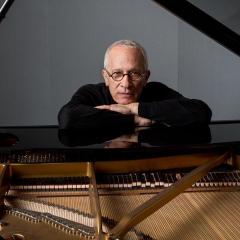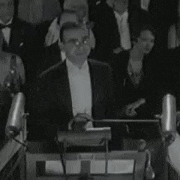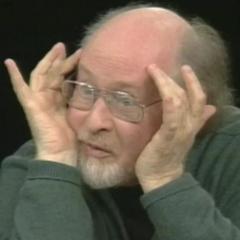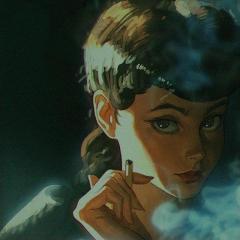Leaderboard
Popular Content
Showing content with the highest reputation on 25/01/20 in Posts
-
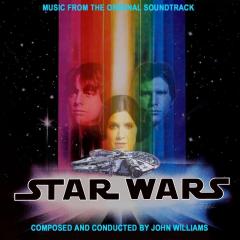
Star Wars Saga Could've Had Overtures
Smeltington and 6 others reacted to Andy for a topic
I've been tinkering with my playlists of the 9 Williams SW scores, and although not a brilliant observation, I am finding myself pleasantly "surprised" that the listening experience is quite wonderful if each film begins with a concert piece before the Main Title. I suppose in the post Fox Fanfare era, it makes even more sense to set a musical tone before the opening blast of the fanfare. It's rather nice to have The Rebellion is Reborn end on the same note as the opening note of the Main Title. Further, it's refreshing to not have to guess a volume level that won't induce a heart attack when the playlist begins on the fanfare. I also find that concert pieces, relegated immediately after the end credits, are often redundant, and I don't really give them their chance to shine. It would be neat if the films were rereleased officially by LFL with overtures, to celebrate the completion of the project by the Maestro. My choices: I: Anakin's Theme II: Across the Stars III: Battle of the Heroes IV: Princess Leia's Theme V: Yoda's Theme VI: Luke and Leia VII: Rey's Theme VIII: The Rebellion is Reborn IX: The Rise of Skywalker Again, I'm not sure if this is something that is on the nose, or under the nose this whole time, but I found it refreshing enough to share here.7 points -
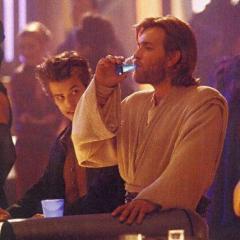
Williams' unrealized scores we know about
enderdrag64 and 5 others reacted to E-Wan for a topic
Here are extracts from Scott Bettencourt's six-part article called "TIMELINES: JOHN WILLIAMS" which was published on FSM website in 2007: 1974: Williams was originally announced to score Robert Altman's gambling drama, CALIFORNIA SPLIT, which featured his actress wife Barbara Ruick in a supporting role. Ruick died unexpectedly of a cerebral hemorrhage during the filming and Williams left the project, though despite his personal tragedy (which inspired his violin concerto), he kept working. 1976: Around the same time, Williams was announced to score Michael Winner's Satanic horror film THE SENTINEL, but wisely backed out at the last moment -- reportedly due to illness, but probably it was simply good sense, as anyone who has seen Winner's film can attest to. It was the first of many incidents were Williams would back out on a project that turned out to be a disaster. 1979: Williams was also announced to score two science-fiction films that proved to be expensive disasters. QUINTET was a bleak post-apocalyptic drama from Robert Altman, with memorable visuals but little in the way of narrative excitement or emotional involvement. It would have been fascinating to see what Williams could have done with such dark material -- especially since Williams' previous collaborations with Altman were so musically unusual -- but Williams left the project, and the striking score was written by Tom Pierson (who was later the music director for Altman's Popeye). METEOR was a big-budget disaster film with a George Pal flavor, but the troubled project ended up with a lengthy post-production period as the effects were redone (and still came out surprisingly cheap looking). Williams' departure may have been due to the scheduling delays, but it proved to be a commercially wise choice. Laurence Rosenthal's score had some fine passagea, especially his soaring main theme, and, ironically, unlike Dracula and 1941, his score was short-listed for the Oscar (in the last year of the Original Score shortlist) -- it was a rare year that Williams had new scores but no Oscar nominations. 1980: Around this time, Williams bailed on two particularly infamous flops. Michael Cimino's visually staggering HEAVEN'S GATE had Williams attached at one point (and Morricone was also considered for the project), but Williams wisely departed (leaving The Missouri Breaks as his final Western score to date), and Cimino went in a markedly different direction with the young composer David Mansfield, whose folksy score proved to be one of the film's most popular elements; he went on to score three more features for the controversial director. INCHON was an epic about a pivotal battle of the Korean War, financed by Reverend Sun Yung Moon, with Terence Young (From Russia with Love, Wait Until Dark) directing an all-star cast headed by Laurence Olivier as General MacArthur (no, really). The film's U.S. opening was delayed, as major subplots and characters were cut out completely, and it was released very briefly in the fall of 1982 before disappearing completely (as far as I know, it has never been released on video or cable). Jerry Goldsmith ultimately provided the score (which gave him the rare opportunity to write a second theme for MacArthur), a lively work which is practically the only thing about the movie that has survived. Considering how great a part of Superman's success his score was, it was only natural that he'd be invited to score SUPERMAN II, much of which was filmed concurrently with the first Superman (though Richard Lester replaced Richard Donner for the completion of the film), but ultimately the film was scored by Lester's regular composer Ken Thorne, basing virtually his entire score on Williams's themes and cues (effectively if unimaginatively). One of Superman's producers has claimed that Williams met with Lester about scoring the film but had such a negative reaction to the director that he turned the job down. Considering how famously easygoing both Lester and Williams are, this scenario is less than plausible -- it's far more likely that the Superman producers simply didn't want to pay Williams' fee (the Brando footage shot for Superman II was deleted for similar financial reasons, while Lester has said he worked on the Superman films mostly to get money owed to him by the producers from their Musketeers films). 1994: In the mid-90s, there were rumors that Williams was considering retirement (his leadership of the Boston Pops ended in 1993), and he didn't score any new films in 1994. He was originally announced to score Mike Nichols' offbeat werewolf thriller WOLF (which would have made a nice companion piece with Williams's Dracula and The Witches of Eastwick), but Williams ultimately left the project and Ennio Morricone wrote a typically striking score. 1999: Williams was originally announced to score Chris Columbus' megabudget project for 1999, the sci-fi comedy drama BICENTENNIAL MAN, with Robin Williams as a robot fighting for his rights as a sentient being, but the film ended up being scored by James Horner (and was a rare commercial failure for the director). Instead, Williams scored his only (to date) film for director Alan Parker, the underrated adaptation of Frank McCourt's best-selling memoir ANGELA'S ASHES.6 points -
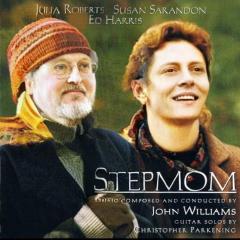
92nd Academy Awards (2020 ceremony for 2019 films)
Bilbo and 3 others reacted to Not Mr. Big for a topic
They'll play the trailer music4 points -

Star Wars Saga Could've Had Overtures
The Illustrious Jerry and 2 others reacted to Unlucky Bastard for a topic
3 points -
Whether he liked or not, surely that was Hamill’s performance of a career!3 points
-
His wins are technically nominations3 points
-
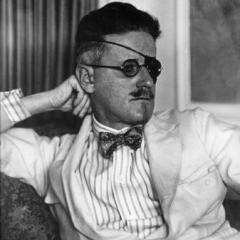
Why is it so hard for John Williams to collaborate with new directors?
wowbobwow and 2 others reacted to TheUlyssesian for a topic
Not many directors are in the market to purchase what Williams is selling. To be completely honest, I doubt very many people are asking JW to score their films. First, he's too expensive. Second, he will take his time. They can't do a hack job with him. They will have to give him the film months in advance in and give him time to write the score. Third, he will not do demos for you? Are you fucking kidding. Williams obviously reached that milestone decades ago but obviously nobody is going to dare ask JW to write demos before he is hired. Fourth, You cannot reject a Williams score. You will have to take what you get. He will make changes for sure but for the most part, he's written what he's written. Fifth, His score will most definitely not be a wallpaper. He is NOT going to give you suites to edit into your film as you want. He's going to honest to god score it with individuals cues for individual music. Sixth, his music will not disappear into the background. It will most definitely make its presence felt and will affect the scenes it is in. Seventh, it will likely be a "bigger" score than these film-makers are used to. There will be multiple themes etc. which will have to be placed right and the score will have to be properly handled. Eight, you will likely hear the score proper on the day you record it. For all the reasons, I think newer film-makers are intimidated. They want gutter trash trailer music garbage soundscape suites that they can demos of, play on set, cut the movie to and then apply in the background as needed. No headache. Who's going to do a spotting session? And wait for the score for months? Without demos? And who's going to do a complex edit of getting the score in and potentially re-editing the movie, and redoing the mix etc. etc. Basically, it is beyond the skill, capability or ambition of these film-makers to actually work John Williams to create a score for their films.3 points -

Hans Zimmer's top 40 film scores of all time - he included 2 John Williams scores
_deleted_ and 2 others reacted to TheUlyssesian for a topic
Isn't it mostly just concert arrangements? It's basically theme tracks or main titles or end titles for the most part. Hans picked these because he composes just those - the demos. He does not actually seem to actually "score" any scenes with scene specific music or variation or adaptation or anything of the like.3 points -
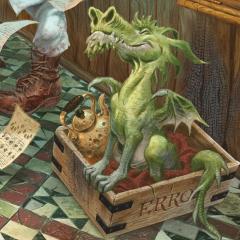
John Williams cameo in The Rise of Skywalker
Cerebral Cortex and 2 others reacted to crlbrg for a topic
3 points -
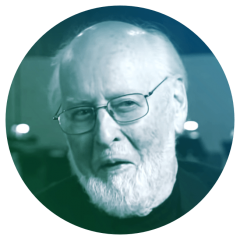
John Williams & the Vienna Philharmonic: January 18/19 2020
Cerebral Cortex and one other reacted to toothless for a topic
2 points -
@Hedji@Will ROTJ:2 points
-
@HedjiYou reminded me of these old Overture/Intermezzo mashup edits using the concert suites/end credits that I did:2 points
-
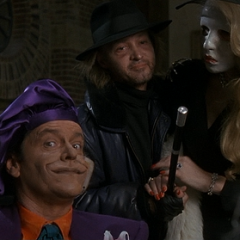
Star Trek: Picard (2020 TV Series)
Cerebral Cortex and one other reacted to Gruesome Son of a Bitch for a topic
I'm okay with it not feeling like TNG.2 points -

Star Trek: Picard (2020 TV Series)
Bryant Burnette and one other reacted to BLUMENKOHL for a topic
I hate you for sharing that. I'm going to go sob in a corner for the next three hours. This directionless drivel we're getting from Jeff "Mom Bought Me a Mac With GarageBand On It" Russo is a true shame.2 points -
On TFA, I didn't liked how the character's arcs were handled, but then when I watched TLJ, I thought it improved the characters greatly. On the first movie, Finn abandoned the First Order after his first time on a conflict - about 20 minutes later, actually, which is weird, but anyway. But then, on TLJ, by the beginning of the movie, he sees that the Resistance almost being annihilated and he decides to abandon then as well. I thought this was more consistent with how he was introduced. Whether fighting for the First Order or the Resistance, by that point Finn doesn't exactly have a side on that conflict. Basically, he just wants that he and his friends survive. Is it coward? Probably, but also consistent with the character. Then, during TLJ, he sees how the galaxy has been oppressed, how terrible life is for a lot of its citizens, and he decides to take a stand, to fight, to inspire. His arc with Rose helps the character grow and overcome his flaws, to become the best fighter for the Resistance. Unfortunately, TROS didn't continue this arc of growth, but anyway. As for Poe, on the first movie we only know him as hotshot pilot, who is trusted by Leia and commands the Resistance pilots during battles. Cool, but thin as a paper. Then, on TLJ, he learns that he still have a lot to learn on how to best face the enemy, how to be a leader for its soldiers even in face of unfavorable odds - which he does, by the end of the movie ("Why are you looking at me? Follow him!"). In some ways, TLJ is about errors, failures, defeat, but also about growth despite the defeats. Our characters, Rey, Poe, Finn, Kylo, Luke, they all fail because of their personal flaws, but they (at least the heroes) learn how to overcome their flaws in order to become better people and better help their cause.2 points
-
He called out Shawshank as one of his favorites to Newman himself when they were on an Oscar roundtable together. Also he and Henry Jackman fawned over Predator 2 to Silvestri immediately before that, and I see the first Predator makes the list here. Very sweet! It's a nice list. Distributes the wealth, two solid JW picks. And yeah, interesting that Goldenthal and Goldsmith are the two that he just couldn't narrow down. Also I like the spread of the timeline. From King Kong all the way up to Red Sparrow!2 points
-
I liked how the SE's presented them like intermezzos/Ent'racte2 points
-

Williams' unrealized scores we know about
DrTenma and one other reacted to Ricardo Mortimer for a topic
I know about Superman 2: Composer John Williams was originally slated to score Superman II in which he was given a screening with Ilya Salkind and Richard Lester. When Salkind left the projection room, Williams and Lester fell into an argument, and when Salkind returned, Williams told him that he "could not get along with this man". To take his place, Richard Lester's frequent composer Ken Thorne was selected to score the sequel. (Wikipedia) I want to see someone argue with him or how Williams yell at someone2 points -
I haven't seen this list posted before on the forum - it was shared in april last year. Elliot Goldenthal and Jerry Goldsmith are the two film composers with the scores in Zimmer's list, the only ones with three scores each in Zimmer's top 40. A bit surprised Zimmer didn't pick more scores by Morricone, as he is Zimmer's #1 film composer of all time. Hans Zimmer's top 40 film scores of all time (in no order): Titus Victorius from Titus composed by Elliot Goldenthal Adagio from Alien 3 composed by Elliot Goldenthal Alcoba Azul from Frida composed by Elliot Goldenthal Main Title from Alien composed by Jerry Goldsmith The Reactor / The Hologram from Total Recall composed by Jerry Goldsmith Main Theme from Basic Instinct composed by Jerry Goldsmith Wild Signals from Close Encounters of the Third Kind composed by John Williams Washington Ending / Raiders March from Raiders of the Lost Ark composed by John Williams The Mission from The Mission composed by Ennio Morricone Main Theme from Once Upon a Time in the West composed by Ennio Morricone Love Theme from The Godfather composed by Nino Rota La Bella Malinconica from La Dolce Vita composed by Nino Rota Titles from Chariots of Fire composed by Vangelis End Titles from Blade Runner composed by Vangelis Theme from Back to the Future composed by Alan Silvestri Main Title from Predator composed by Alan Silvestri Theme / Isandhlwana from Zulu composed by John Barry Wednesday's Child from The Quiller Memorandum composed by John Barry Avalon / Moving Day from Avalon composed by Randy Newman The Natural from The Natural composed by Randy Newman Malcolm Is Dead from The Sixth Sense composed by James Newton Howard Can I Trust You? from Red Sparrow composed by James Newton Howard Test Drive from How to Train Your Dragon composed by John Powell Dedication from United 93 composed by John Powell Main Title from King Kong composed by Max Steiner Main Title from Gone with the Wind composed by Max Steiner Coronation from Kingdom of Heaven composed by Harry Gregson-Williams Main Title Theme from The English Patient composed by Gabriel Yared The Umbrellas of Cherbourg from The Umbrellas of Cherbourg composed by Michel Legrand Theme from Midnight Express composed by Giorgio Moroder Dawn / Buck Up - Never Say Die / Smile from Modern Times composed by Charlie Chaplin Prologue and Main Title / Castle Plunkett from High Spirits composed by George Fenton Main Title Theme from The Last Emperor composed by David Byrne Ballad for Mathilda from Léon composed by Éric Serra Merry Christmas Mr. Lawrence from Merry Christmas Mr. Lawrence composed by Ryuichi Sakamoto Future Markets from There Will Be Blood composed by Jonny Greenwood Main Title from Laura composed by David Raksin Main Title from Taxi Driver composed by Bernard Herrmann Tsurumaru's Flute / Azusa Castle In Ruins from Ran composed by Toru Takemitsu The Shawshank Redemption from The Shawshank Redemption composed by Thomas Newman1 point
-
1 point
-

Why was/is Williams' music considered 'outdated'?
TSMefford reacted to Unlucky Bastard for a topic
Melodies are for old grannies who aren't as sophisticated as us Gen-Zs.1 point -
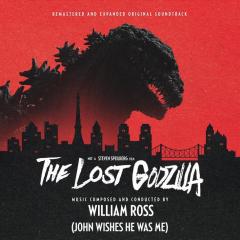
The Rise of Skywalker SPOILERS ALLOWED discussion thread
Pieter Boelen reacted to TSMefford for a topic
These are pretty good points. I've been in the camp from the beginning that I wanted him to stay a villain though regardless. The whole redemption arc thing again was not interesting to me in the slightest, and after TLJ (as flawed as it is) set-up the shades of grey on both sides, I was really hoping we wouldn't do the route of redemption again. Oh well.1 point -
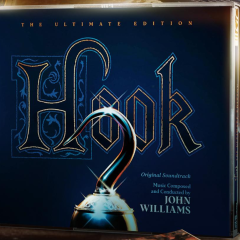
Prisoner of Azkaban cue sheet?
bollemanneke reacted to Jay for a topic
The entire LTP concert matches the final film exactly, other than adjusting the instrumentation when the instrument wouldn't be available, like some of the Knight Bus stuff (I believe Justin Freer talks about this in my interview on the main page), and the end credits. So yea, they play that tambourine stuff, so yea, it'd be in the LTP sheets1 point -

Star Wars Saga Could've Had Overtures
Andy reacted to The Illustrious Jerry for a topic
This is the most "JW Fan" thing I've read in a while. Story of my life!1 point -
As I recall from interviews there was a specific window of like 6 weeks or something in the middle of TFA scoring where he was gonna take a break and write/record Bridge of Spies, Spielberg had worked it out with JJ and everything. That whole break ended up having to be taken up by his infamous pacemaker surgery and recovery. He had been planning to do Ready Player One along with Last Jedi in 2017-18 so I assume scheduling got screwed up when The Post got thrown into the mix. I don’t think there was ever direct confirmation of what happened there but seems the obvious explanation.1 point
-
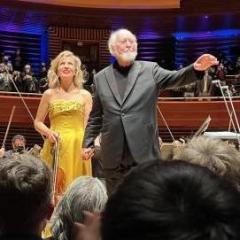
John Williams cameo in The Rise of Skywalker
mrbellamy reacted to Taikomochi for a topic
He was nominated for ESB. They reference his nominations, not his wins, unless I’m misunderstanding the point being made here1 point -

Williams' unrealized scores we know about
Tydirium reacted to Ricardo Mortimer for a topic
I can imagine that music, something like constant The Flag Parade style, you know I thought I will write to him about Cleopatra and fans' wishes.1 point -
Me too. A couple years ago, I copied this idea for an expanded OST-FYC edit of TFA with the three main concert suites presented between "The Starkiller" and "Kylo Ren Arrives at the Battle."1 point
-
1 point
-
@crocodile this thread made me relisten to the ROTJ album. I had forgotten Fight in the Dungeon and the Jabba concert suite are completely missing. I think the release being a single LP (unlike SW and ESB, which were double LPs) put a hamper on the opportunity to showcase the ROTJ music on the album. I would rate it low as well.1 point
-
Honestly, I like pretty much how John Williams handled his career. Looking at his IMDB.. all the movies he did since the 70 are almost all great pieces of arts. (ok, SW1-2-3 are not so great... but it is star wars nevertheless) Why want more collaborations with directors when you have Steven Spielberg? If you look at Alexandre Desplat or any other "i'm doing 8 movies a year" composer, frankly you can throw half of the movies, they wont stand the time. Half of the movies are so-so. What's the point of making 6 movies a year if you are only doing 1 great score every 3 years? Quality VS Quantity. I have the feeling these over-busy film composers have to do so many movies because either budgets are shrinking, or also because they feel they HAVE to maintain relationships with directors. But I can understand John Williams. It's nearly impossible to maintain a true and deep relationship with more than 2 directors while still making scores the way JW does scores. JW scores are high-level gastronomy or painting that would be exposed in great museums. They are not fast-food soundtracks. I remember reading somewhere, but cant remember where now, that John Williams writes 1 minute of score everyday. Only one minute. Because his music is so refined, detailed. And he writes every cues. That takes a lot of time. Another possibiliy is also the movie industry changing. Movies are not the same anymore, and don't necessary need the same kind of scores. It saddens me, but it's a true fact. Also, supporting a john williams score as a director must be frightening. Also, discovering how the score sounds only the first day of a recording session, like (I believe) John Williams do, is something that can't be done anymore. Ok, nowadays they may do some virtual mockups of John Williams scores to show to the director, but i'm not even sure they do mockups of JW. To finish, recording an orchestra with Williams must be so expensive. I've read that Star Wars or Harry Potter in abbey road took more than 12 days to record whereas your usual 2020 hollywood score is recorded in 1 or 2 days.1 point
-

Star Trek: Picard (2020 TV Series)
Cerebral Cortex reacted to Gruesome Son of a Bitch for a topic
I, of course, thought Discovery's theme was ass, but then so is the show. I also thought Giacchino's scores were ass and nothing like Star Trek, but then again, look at the movies. All the romanticism stripped away, a lame attempt to make Trek seem more epic and badass. Yeah. That's one thing about this show that works for me. The slow pace. Patrick Stewart acting and being emotional. Talky scenes. Little action. A mystery. It was like...Star Trek. Now we can forget that the last 10 shitty years happened and move on with our Trek lives. Hopefully they don't screw it up.1 point -

Star Trek: Picard (2020 TV Series)
Not Mr. Big reacted to Gruesome Son of a Bitch for a topic
Hmm. I didn't mind the music and I usually hate everything. You know, the music for TNG and other Trek series in the 90s was a lot of endless strings and the same cadence (?) for every commercial break. Picard's pilot score was just fine.1 point -
To be passed up for John Williams certainly isn't an insult, but to be passed up for Kloser and Wander on the following Emmerich movies... That's tragic.1 point
-
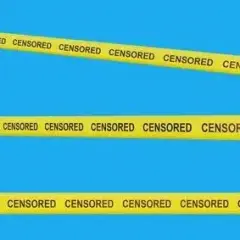
Why is it so hard for John Williams to collaborate with new directors?
Unlucky Bastard reacted to Jurassic Shark for a topic
Wanker, you mean.1 point -

Why is it so hard for John Williams to collaborate with new directors?
Unlucky Bastard reacted to Jurassic Shark for a topic
Perhaps Arnold slept with his wife.1 point -
If they did all that for the scene, they could have let it last a little bit longer than 3 seconds. But then again, that's a general problem with the film.1 point
-
.thumb.gif.df2a851b259fbffe34b18fc1c796422a.gif)
John Williams cameo in The Rise of Skywalker
crumbs reacted to Cerebral Cortex for a topic
"I have an idea: we'll have John Williams cameo in the film, we'll reference all 51 of his previous Academy Award nominations, and then we'll have none of his actual music play in the scene."1 point -
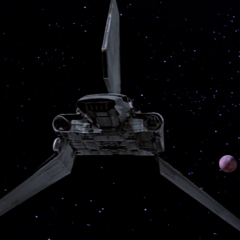
Why was/is Williams' music considered 'outdated'?
Smeltington reacted to Tydirium for a topic
Couldn't have said it better myself; you raise a point which I've been trying to find the words to express lately. It feels like in the 20th century classical music hit a fork in the road (Mahler was one of the key figures to introduce said fork) and went two separate ways: the people who wholly embraced atonality as the ONLY next step for music to go in, and the people who wanted to continue the Romantic tradition (while still dabbling in newer techniques and using atonality like a light seasoning to be employed for great effect/affect). Some examples of the former would be the Mahler pupils and acolytes (Berg, Webern, Schoenberg etc.), and the latter would be figures such as Richard Strauss (post-Mahler's death), Korngold, heck even Sibelius in Finland. It seems like some people were so fascinated by the 12-tone-system that they thought tonality must be done away with entirely, whereas others thought it was an interesting concept and yet still saw value in making music that "sounds good". But in addition to his well-timed use of atonality in otherwise tonal music, Williams is also an interesting figure to me because, like Rachmaninoff in his later years (Piano Concerto No. 4 for instance), he was influenced by jazz in addition to his traditional classical upbringing. The thing that really makes Williams stand out from a lot of other composers, imo, and which makes him feel like this logical "next step" you speak of, is his perfect synthesis of the jazz and classical harmonies and styles. Atonality went away from tonality, but jazz delved further into tonality, venturing into uncharted areas and introducing new ideas of harmonization. It'd be like if Beethoven or Brahms discovered a bunch of new chords, and continued to write melodic, tonally logical music—but now harmonized with a bunch of major 7th chords underneath. Basically what it boils down to is, there was still a wealth of stuff to be explored and accomplished within the tonal system at the time that the 12-tone fanatics jumped ship—which is why someone like Williams feels like a logical "next step"...1 point -
The 2020 film scores speculation thread!
The Illustrious Jerry reacted to Disco Stu for a topic
I would add Desplat's score for The French Dispatch to the list. It's Wes Anderson so it'll be a comically nostalgic take on post-war France, which will surely allow Desplat to be VERY Desplat. Or maybe Desplat will get 15 minutes of original music while Anderson covers the film with needle-drops from contemporaneous nouvelle vague film scores, it could go either way.1 point -
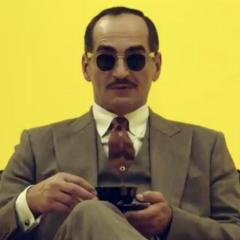
The Rise of Skywalker OST Album Discussion
Jurassic Shark reacted to Arpy for a topic
The MCU is beneath Williams, besides, they've had Alan Silvestri, Danny Elfman and Michael Giacchino to do those chores.1 point -

John Williams cameo in The Rise of Skywalker
Cerebral Cortex reacted to SteveMc for a topic
He never would have done it 20 or even 10 years ago. He has definitely mellowed in the past 5 years or so. He obviously did not do it for ego reasons. Or even just to please JJ. I think he thought it would be fun!1 point -

I can't believe it's not John Williams! (the best imitators)
redishere reacted to TheUlyssesian for a topic
Harry Potter 2 by William Ross.1 point -
Same thing happened with JNH's Snow Falling on Cedars.1 point
-
FYI, just realized that the Stepmom FYC is an HDCD, while the commercial release was not apparently.1 point

